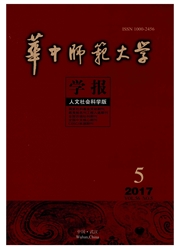

 中文摘要:
中文摘要:
日本垃圾分类是世界公认的成功典范,日本基于本国资源特点在多年实践中形成了以公民参与为中心社会各界全方位参与的垃圾分类协同治理机制。这个机制以多样化的垃圾分类宣传教育为基础,以责任明晰的垃圾分类管理法律体系为保障,以严格的惩罚措施和监督措施为外在压力,以有效的扶持与激励政策为动力。为学习其成功经验,作者在日本进行了访谈并发放问卷,调查日本公民对本国垃圾分类管理的体会和评价。数据显示:公民参与、教育宣传、法律约束、政府激励和多主体协同治理是日本垃圾分类管理的主要成功经验。最后,探讨中国借鉴日本经验的前提条件,并结合我国垃圾分类管理的现状,提出改进我国垃圾分类管理的对策和建议。
 英文摘要:
英文摘要:
Japan's waste classification is recognized as the world's most successful model.Based on its resource characteristics,a collaborative governance system has been developed after practice for many years,which is centered on civic participation and engages many parties of the society.This system is based on diversified publicity and education,guaranteed by a comprehensive legal system,pressured by strict penalty system and supervision mechanisms,and motivated by effective support and incentive policies.To learn the successful experience,the paper conducted field study and questionnaire survey in Japan,investigating Japanese citizens'evaluation of the waste classification management. As data displayed,citizen participation,publicity and education,legal restraint, incentive mechanism and multi-agents collaborative governance are major successful experience in Japan's waste classification management.Finally,with the discussion of the prerequisite and status quo of Japanese experience,it proposed suggestions to improve China's waste classification management.
 同期刊论文项目
同期刊论文项目
 同项目期刊论文
同项目期刊论文
 期刊信息
期刊信息
